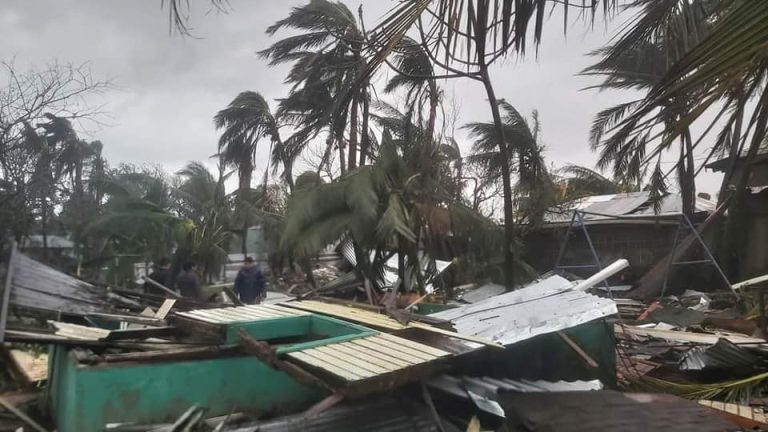18 de noviembre 2020

Children of Exile: The Births “Sowing Hope” in the Camp of Nicaraguan Farmers

PUBLICIDAD 1M
PUBLICIDAD 4D
PUBLICIDAD 5D
A witness tells of Hurricane Iota’s impact, one day after it made landfall. “There are many homes destroyed, and no services.”

One day after Hurricane Iota struck the city of Bilwi, “people are fearful, afraid, very stricken and very nervous.” This is the summary from a witness to the disaster, when a second hurricane hit the city within two weeks. The eyewitness, an executive with a private company, spoke with Confidencial at noon on November 17th, via satellite phone.
Hurricane Iota has left the city of Bilwi, “completely ravaged”, according to the testimony of this inhabitant. Bilwi, formerly known as Puerto Cabezas, is a coastal municipality of some 70,000 in Nicaragua’s North Caribbean region. Since early morning of Tuesday, November 17th, it has been completely without communications due to the hurricane’s passage.
Iota made landfall in Nicaragua as a Category 4 storm with winds of 155 mph. It is currently [evening, November 17] passing over land and has degraded into a tropical storm as it moves into Honduras.
“There is currently no access to the communities outside the urban area. The rivers have flooded. Within the city, brigades are working to clear the streets of fallen trees and other rubble. There’s some ability to move around.” These were the short remarks of the company executive there, in response to questions Confidencial posed via satellite phone.
“Businesses are closed. However, some people are in the streets trying to buy items to protect their property, like zinc roofing sheets and other things. There are also brigades trying to provide better internal access,” he stated.
“At this time there aren’t any public services, there’s no electricity, and there’s no form of communication. As far as food goes, private companies helped us with basic food supplies after Eta. Those supplies are helping us at this moment,” the executive said.
The Nicaraguan Institute of Telecommunications (Telcor) reported that the hurricane had left at least 35 municipalities incommunicado. These are located in the North and South Autonomous Caribbean Regions, plus Jinotega, Matagalpa and Nueva Segovia. The interrupted communications are due to flooding at the Columbus Networks company which provides broadband services to these zones.
Hurricane Iota battered the North Caribbean Autonomous Region with winds of 155 miles per hour. Iota made landfall in Nicaragua on Monday night, near the town of Haulover, slightly to the south of Bilwi. Some 350 families, a total of 1,750 people, live in Haulover, the majority of them from the indigenous Miskitos. The community itself gets its sustenance from fishing and tourism.
“There’s no precedent for a hurricane of this strength in Bilwi, there’s no comparison with other events. The winds were much stronger, and it brought a lot more rain than Eta,” said the witness. Eta had struck the same zone at the beginning of November.
The source stressed: “Eta downed a lot of trees, some roofs were damaged and communications and electric lines came down. But Iota left many houses completely destroyed. A large number of other homes lost their roofs and were badly damaged.”
Eta was also a Category 4 storm on the Saffir-Simpson scale. It pummeled the North Caribbean for two days, beginning November 3rd. According to government data, it left 1,890 homes destroyed in Bilwi, and surrounding communities while another 8,030 suffered partial damage. Because of this, the zone was already highly vulnerable when Iota struck.
“We’ve heard that several shelters were damaged and some lost their roof. But we don’t know if there were any injuries or deaths from that,” the executive commented.
This businessman and some of the other company employees were being put up in hotels. This was for their security and that of their families. “The head of every household stayed to protect their homes, while the wives, children and family members stayed in the hotel. We weren’t the only ones there, there were other groups,” he indicated.
“Up until now we haven’t heard of any injuries or deaths, because communications are very scarce,” he added.
Archivado como:
PUBLICIDAD 3M
Confidencial es un diario digital nicaragüense, de formato multimedia, fundado por Carlos F. Chamorro en junio de 1996.
PUBLICIDAD 3D